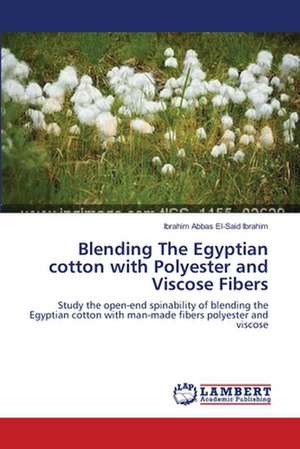Blending The Egyptian cotton with Polyester and Viscose Fibers
Autor Ibrahim Abbas El-Said Ibrahimen Limba Engleză Paperback – 3 iun 2012
Preț: 414.13 lei
Preț vechi: 450.15 lei
-8% Nou
Puncte Express: 621
Preț estimativ în valută:
79.25€ • 86.06$ • 66.57£
79.25€ • 86.06$ • 66.57£
Carte tipărită la comandă
Livrare economică 22 aprilie-06 mai
Preluare comenzi: 021 569.72.76
Specificații
ISBN-13: 9783659130137
ISBN-10: 3659130133
Pagini: 176
Dimensiuni: 152 x 229 x 10 mm
Greutate: 0.27 kg
Editura: LAP LAMBERT ACADEMIC PUBLISHING AG & CO KG
Colecția LAP Lambert Academic Publishing
ISBN-10: 3659130133
Pagini: 176
Dimensiuni: 152 x 229 x 10 mm
Greutate: 0.27 kg
Editura: LAP LAMBERT ACADEMIC PUBLISHING AG & CO KG
Colecția LAP Lambert Academic Publishing
Notă biografică
Dr. Ibrahim Abbas El-Said Ibrahim, Associate Professor of Plant Production Department (Crop Science) at Faculty of Agriculture Saba Basha, Alexandria University, Egypt. He has obtained Ph.D degree in crop Science, 2006. He has authors of several articles published in international and local conferences and journals.




